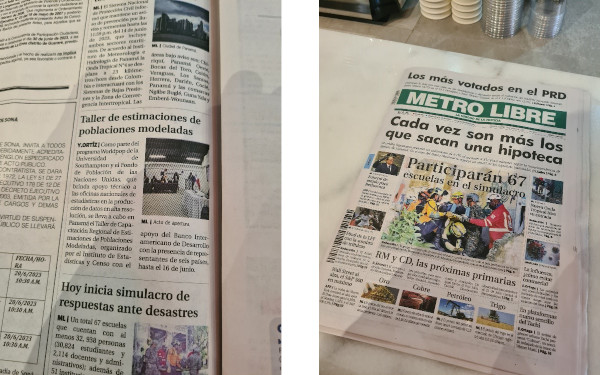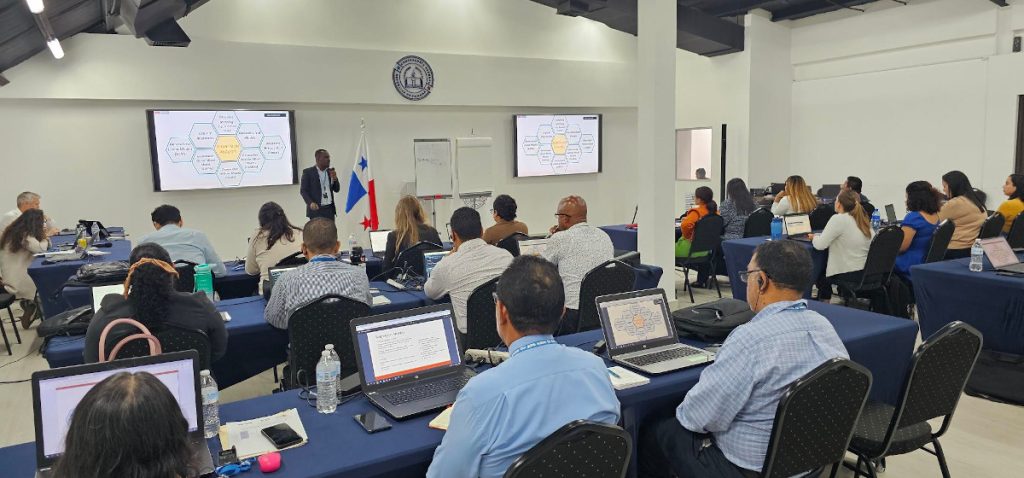Many countries in the Latin America and Caribbean region have recently conducted censuses and are in the process of compiling and analysing results. Within censuses, challenges can often arise around omission of certain populations, geographical access, distribution of small area results and updating sample frames. WorldPop in collaboration with the Regional Office for Latin America and the Caribbean (LAC) and the Panama Country Office of the United Nations Population Fund (UNFPA), and the National Institute of Statistics and Census (INEC) in Panama held a five-day workshop in Panama City on modelled population estimates to address such challenges.
The Inter-American Development Bank and a grant from the University of Southampton Higher Education Innovation Fund led by Dr Sarchil Qader provided financial support for organising the workshop. The WorldPop team consisted of Professor Andy Tatem (Director), Dr Sarchil Qader (Senior Research Fellow), Dr Natalia Tejedor Garavito (Senior Enterprise Fellow) and Dr Ortis Yankey (Research Fellow). Officials from statistical institutes in Costa Rica, Colombia, Brazil, Dominican Republic, Ecuador and Panama participated in the workshop. In addition, staff from the Economic Commission for Latin America (ECLAC) also attended and, virtually, the Latin American Population Association (ALAP) participated.
The workshop aimed to strengthen the capacity of National Statistical Offices (NSOs) in Latin America and the Caribbean in exploring and applying various population modelling techniques and tools (e.g. the preEA package) developed by WorldPop in areas such as population estimation, determining census omission, filling census gaps and designing customised national sampling frames to serve census and various socio-economic surveys.
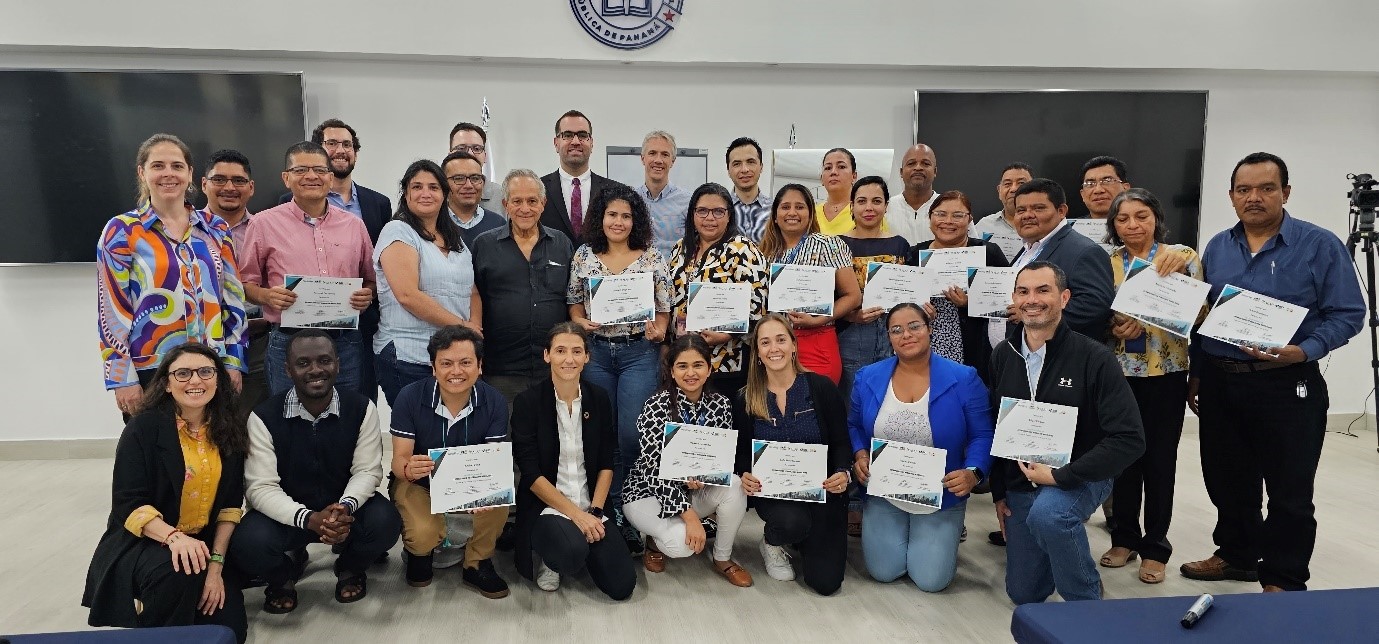
The first day of the workshop was attended by various dignitaries, including the Director of the National Institute of Statistics and Census (INEC) in Panama, Mr Samuel Moreno, UNFPA LAC deputy director, Ms Verónica Siman, the State Lead Specialist at the Inter-American Development Bank (IDB), Mr José Antonio Mejía, and UNFPA LAC Regional Technical Advisor on Population and Development, Dr Sabrina Juran.
Mr Samuel Moreno opened the workshop with some remarks on the need for an accurate population estimate to enhance decision-making. WorldPop Director Prof. Andrew Tatem also provided an overview of WorldPop and a brief introduction to the population models developed by the WorldPop Research Group. This followed remarks from Ms Verónica and Mr José who highlighted the importance of such workshops and training to improve the capacity of NSOs to assure their familiarity with modern geospatial techniques. The first day also included country presentations on the challenges faced by Latin American Countries in conducting national censuses and the way forward.
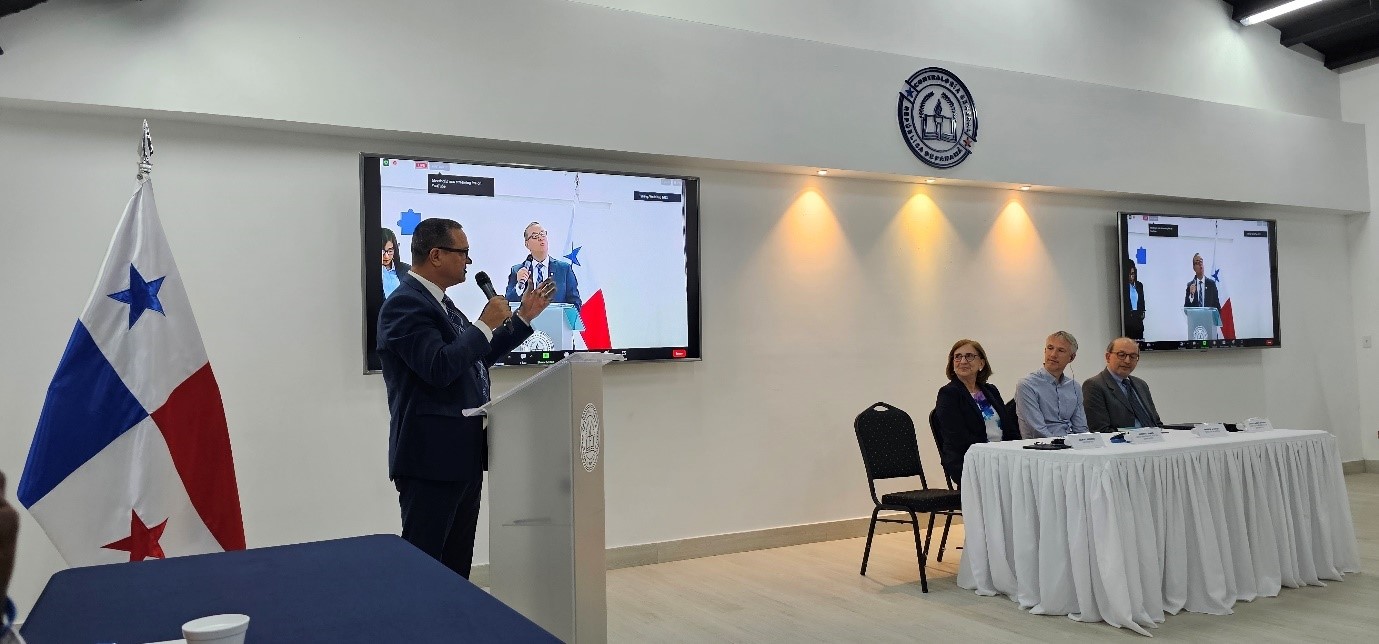
The next three days of the workshop were dedicated to exploring the intricacies of population modelling with hands-on training led by Dr Ortis Yankey. Attendees delved into the nuances of Bayesian statistics in R, a powerful statistical approach that offers a flexible framework for analysing population dynamics and making informed population predictions with model uncertainties.
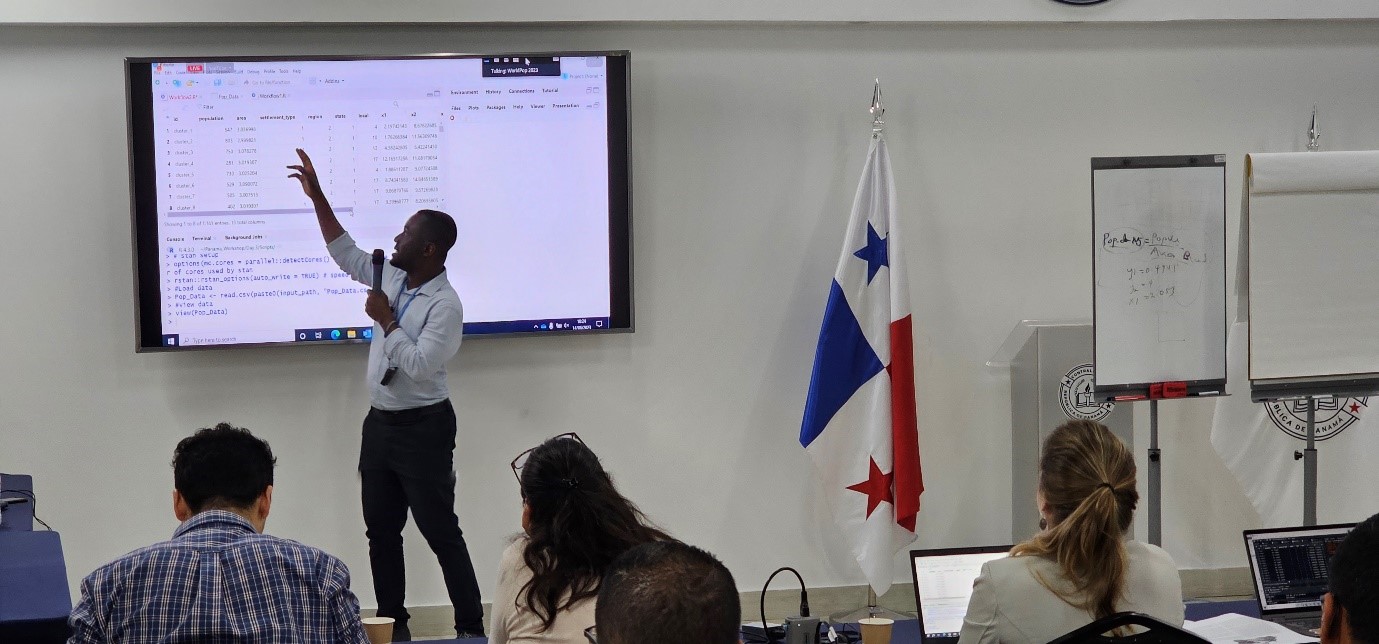
On the final day, the workshop shifted its focus to explore smart and flexible approaches (the preEA package) to support pre- and post-census and survey activities, led by Dr Sarchil Qader. Outdated national sampling frames can lead to biased survey results and statistical invisibility. The preEA tool can support NSOs to update their national sampling frame to assure accurate representation of diverse populations.
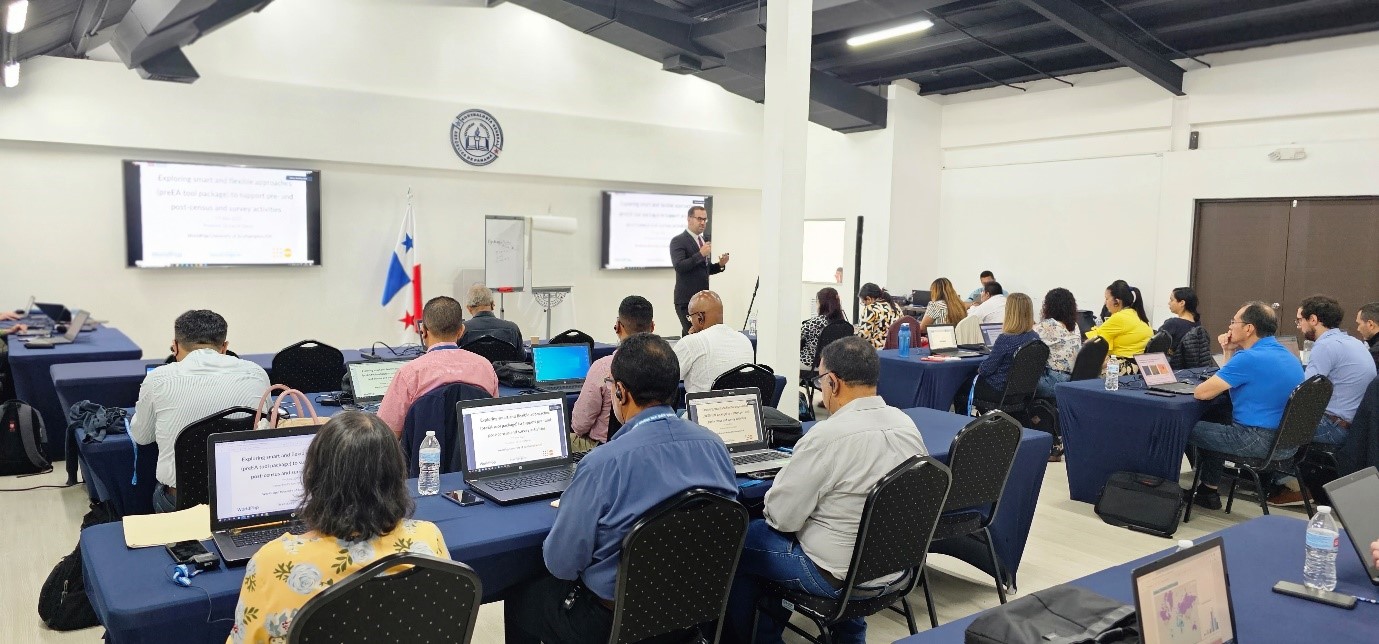
As the workshop concluded, participants expressed gratitude for the opportunity to learn from leading experts in the field and network with professionals from different nations. They conveyed their commitment to applying the acquired knowledge to enhance the accuracy and comprehensiveness of population estimates and national sampling frames in their respective countries. With the increased capacity in population modelling and sampling frames, Latin American nations are better positioned to address demographic challenges and effectively plan for the future. The knowledge and skills gained during this workshop can contribute to the sustainable development and well-being of the region’s populations.
The workshop was covered by multiple media outlets and local news agencies. Below are few examples of the media coverage:
